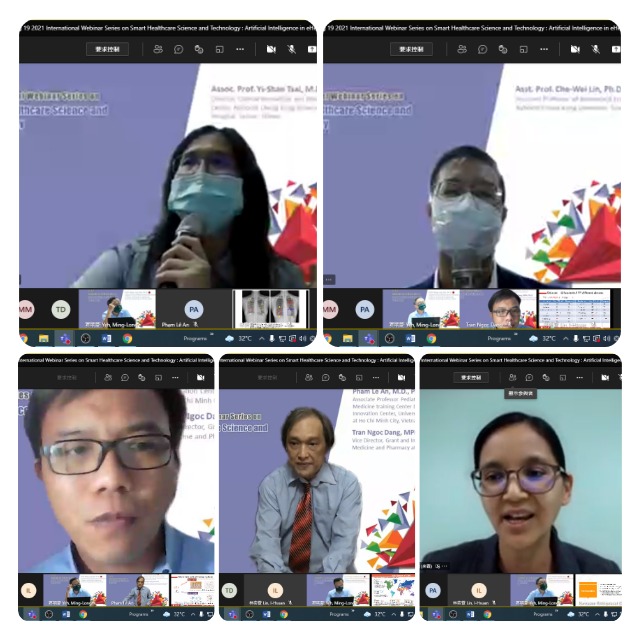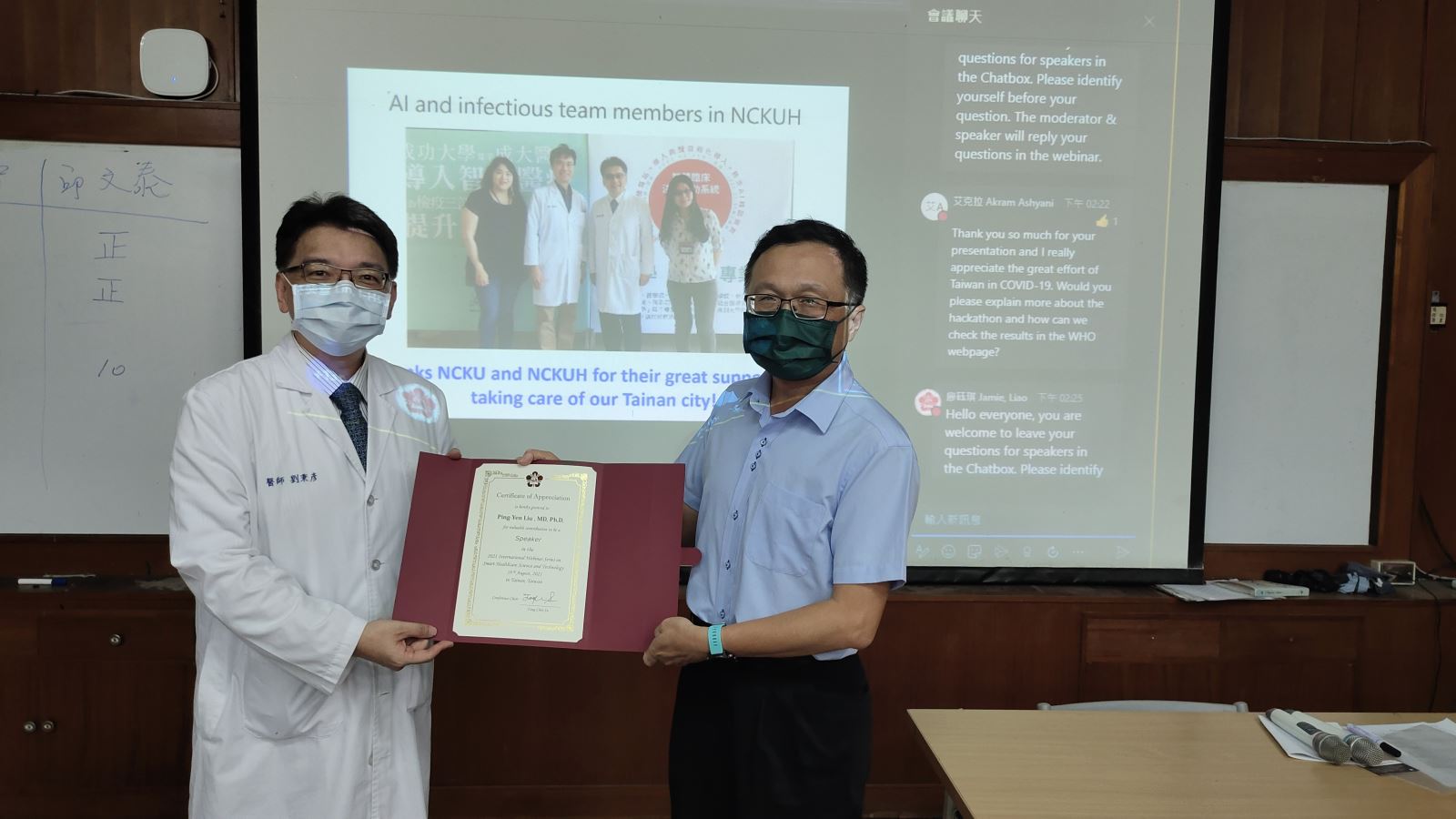Covid-19 pandemic has accelerated adoption of smart healthcare. To avoid the spread of virus, global scientists, clinical experts, companies and public sectors actively take part in digital transformation and technology innovations in order to find solutions to tackle this unprecedented situation. On Aug 19, Taiwan Center for Smart Healthcare Science and Technology in Thailand organized a webinar “Artificial Intelligence in eHealth” and invited experts from Taiwan, Thailand and Vietnam to explore trending applications in AI Healthcare.

Figure 1: Experts from Taiwan, Thailand and Vietnam to explore trending applications in AI Healthcare
Prof. Ming-Long Yeh, Deputy Director of Medical Device Innovation Center hosted the webinar. Asst. Prof. Che-Wei Lin, assistant professor of biomedical engineering in NCKU Taiwan (National Cheng Kung University) together with Prof. Pham Le An, Associate Professor Pediatrics in UMP Vietnam (University of Medicine and Pharmacy at Ho Chi Minh City) presented their collaborative projects. They had researched the application of E-nose in screening bacteria and upper-tract infection diseases including COVID-19, as well as screening diabetic foot infection bacteria and classifying wound healing smell.
Assoc. Prof. Panrasee Ritthipravat from Dept of Biomedical Engineering in MU Thailand (Mahidol University) introduced AI-based systems and learning games used in rehabilitation, education and managing health such as Gyro-roller rehabilitation system, diabetes management app, and also AI learning platform for Thai students.
Dr. Ping-Yen Liu from Division of Cardiology, Internal Medicine, NCKUH (National Cheng Kung University Hospital) shared NCKUH “AI trilogy.” In Particular, a built-in clinical decision-making algorithm on a tablet computer was applied to obtain travel, occupation, contact, and clustering histories and shorten the quarantine survey process, reducing processing time during the COVID-19 pandemic. Now it has already been used in 7 languages. Dr. Yi-Shan Tsai, Director of Clinical Innovation and Research Center from NCKUH continued to share another trilogy “an AI-assisted chest X-ray model for COVID-19” that could assist the doctors for chest X-ray image interpretation for quick recognition of pulmonary infiltrates on chest x-rays and pneumonia differentiation. By working with National Health Insurance (NHI), testing data of 873 suspects is used, showing accuracy, sensitivity of 92.6% and 90.0%.

Figure 2: Dr. Ping-Yen Liu shared NCKUH “AI trilogy.”
The future healthcare will tend to move from multiple to one stop, hospital to homes and general to personalized. It does not just rely on groundbreaking technologies like AI and big data, but also takes ancillary measures, integration of different professions and interfaces, and exchange of international perspectives. NCKU will continue to work closely with Southern and Southeast Asian countries, combining local experiences and Taiwan expertise in medicine and technology, to jointly develop innovative medical technology.